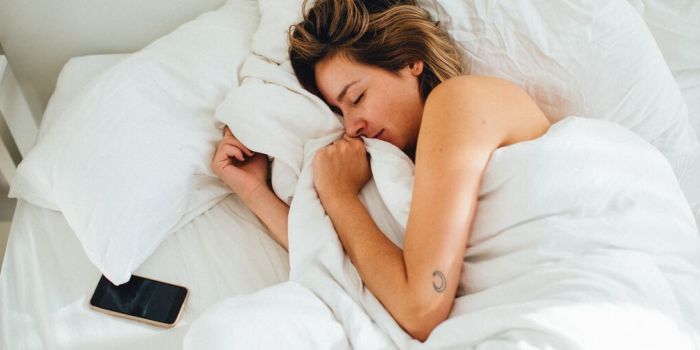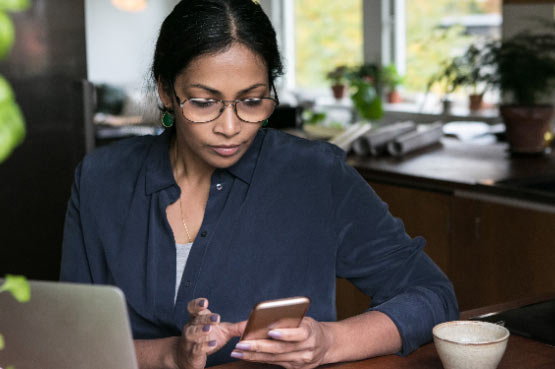Tips to deal with sleep anxiety
We’ve all struggled to sleep at some point. But if you regularly struggle to sleep, you might find yourself feeling anxious at bedtime. This can make it even harder to get the rest you need. Or if you’re a parent perhaps your child feels anxious and struggles to sleep without your help. Here, I talk about some of the ways you can manage anxiety around sleep.

What is sleep anxiety?
Sleep anxiety means you worry about falling asleep or staying asleep. And because you’re worrying about how much sleep you’re getting (or not getting), you might end up losing more sleep over it.
Sleep and anxiety are closely linked. It’s hard to drift off if you’re anxious and, if you’re tired the next day, that can make daily life challenging. Studies have shown that getting less sleep than you’re used to can also make you more anxious the next day.
People who have problems sleeping are also more likely to:
- feel depressed or lonely
- be irritable
- struggle to concentrate
Poor sleep has also been linked to long-term (chronic) conditions such as obesity, heart disease, and diabetes.
These are just some of the reasons that sleep is so important for our health and wellbeing.
What are the symptoms of sleep anxiety?
Anxiety can feel different to different people, but there are some common symptoms. If you’re anxious at night, you might experience the following:
- restlessness
- increased heart rate
- light-headedness or dizziness
- hot flushes
- sleep problems and insomnia
What causes sleep problems?
If you have sleep anxiety, you’ve probably already had some trouble sleeping. This might be because you have a diagnosed sleep condition such as obstructive sleep apnoea or insomnia. Both of these conditions can interrupt your sleep, leaving you feeling tired the next day.
Or you might find it hard to relax at night because it’s the only time you have to think without distractions. Unfortunately, this means you might find yourself thinking about stressful topics, like money or work, as you’re trying to fall asleep. Over time, you might start to associate your bed with sleepless nights, and that can contribute to feelings of anxiety at bedtime.
If you’ve been having trouble sleeping, you might rely on stimulants like caffeine and sugar to help you get through the day. But it might keep you awake for longer than you realise – the effects of caffeine can last for several hours. And for some people, caffeine makes their anxiety worse.
Alcohol might help you get to sleep, but it can also have negative effects on the quality of your sleep.
Sleep anxiety in younger children can be caused by a fear of sleeping alone, or a fear of the dark.
Tips to help you deal with sleep anxiety
One of the main ways to improve the quality of your sleep is to follow good sleep hygiene. The principle behind this is that you’ll develop habits that help create the best conditions for you to sleep in. Good sleep hygiene includes:
- going to bed and waking up at around the same time each day – including your days off
- keeping your bedroom calm, quiet, comfortable, and cool
- not going to bed until you feel sleepy
- avoiding alcohol, nicotine, and caffeine near bedtime
- keeping physically active to boost your physical and mental health, and to help you fall asleep more quickly
Try to follow good sleep hygiene because it can help you fall asleep more easily. This is true in both adults and children, so the tips above may help your child if they’re having trouble sleeping.
Here are some other things you could try to reduce anxiety and help you sleep. Not all of these suggestions will work for everyone. If that happens, you could try something different, or try it at another time.
- Breathing exercises. If you’re feeling anxious or stressed, try controlling your breathing as this might help to relax you. You could try progressive muscle relaxation exercises, too. These involve tensing different muscles as you inhale, and relaxing them as you breathe out.
- Reading or writing. If you’re unable to fall asleep after 20 minutes, it can help to get out of bed and do something else. But, try to avoid an activity that involves electronic devices. This is because the blue light from screens is thought to disrupt your body’s production of melatonin, a hormone that makes you sleepy. Instead, why not read a book or try writing down your thoughts? This might help you to relax and switch off.
- Keep a sleep diary. If you keep having sleepless nights, you might find it helpful to keep a sleep diary. This may help you to find out what could be affecting your sleep. For example, you might discover that you sleep worse when you have caffeine after a certain time of day. Or that an afternoon nap makes it harder for you to get to sleep in the evening. A sleep diary might not work for everyone - regularly monitoring your sleep may make your anxiety worse.
- Therapy. If you’ve had insomnia for more than 3 months, CBT-I may help. This is a type of cognitive behavioural therapy that’s aimed at changing the thoughts and behaviours that could be causing your insomnia.
If lack of sleep is affecting your quality of life, speak to your GP. They can help you figure out what’s causing your sleep issues and advise you on how to manage your anxiety. They can also refer you to a sleep clinic.
If you’re worried about your mental health, our direct access service aims to provide you with the advice, support and treatment you need as quickly as possible. You’ll be able to get mental health advice and support usually without the need for a GP referral. Learn more today.
-
Sources Sources
- About sleep and mental health. Mind. mind.org.uk, published May 2020
- Sleep and mental health. Mental Health UK. mentalhealth-uk.org, accessed 12 February 2024
- How long does it take for caffeine to wear off? Sleep Foundation. sleepfoundation.org, updated 9 January 2024
- Liu C, Wang L, Zhang C, et al. Caffeine intake and anxiety: a meta-analysis. Front Psychol 2024;14. DOI:10.3389/fpsyg.2024.1270246
- Cox R, Sterba SK, Cole DA, et al. Time of day effects on the relationship between daily sleep and anxiety: An ecological momentary assessment approach. Behav Res Ther 2018;111:44-51. DOI:10.1016/j.brat.2018.09.008
- Anxiety at night: causes and tips for relief. Sleep Foundation. sleepfoundation.org, updated 19 January 2024
- Anxiety and panic attacks. Mind. mind.org.uk, published February 2021
- Sleep and chronic diseases. US Centers for Disease Control and Prevention. cdc.gov, reviewed 13 September 2022
- How to help kids who have trouble sleeping. Child Mind Institute. childmind.org, reviewed 30 October 2023
- Healthy sleep habits. American Academy of Sleep Medicine. sleepeducation.org, updated August 2020
- Exercise and sleep. Sleep Foundation. sleepfoundation.org, updated 11 October 2023
- Mastering sleep hygiene: your path to quality sleep. Sleep Foundation. updated 8 December 2023
- Scenario: managing short-term insomnia (less than 3 months duration. NICE Clinical Knowledge Summaries. cks.nice.org.uk, last revised January 2024
- Alcohol and sleep. Drinkaware. drinkaware.co.uk, last reviewed 1 November 2022
- Relaxation. Mind. mind.org.uk, published November 2021
- Blue light: what it is and how it affects sleep. Sleep Foundation. sleepfoundation.org, updated 12 January 2024
- Scenario: managing long-term insomnia (more than 3 months duration. NICE Clinical Knowledge Summaries. cks.nice.org.uk, last revised January 2024
- Cognitive Behavioral Therapy for Insomnia (CBT-I): An Overview. Sleep Foundation. sleepfoundation.org, updated 16 January 2024
- Tips to improve your sleep. Mind. mind.org.uk, published May 2020
About our health information
At Bupa we produce a wealth of free health information for you and your family. This is because we believe that trustworthy information is essential in helping you make better decisions about your health and wellbeing.
Our information has been awarded the PIF TICK for trustworthy health information. It also follows the principles of the The Information Standard.

More mental health and wellbeing articles
Did you find our advice helpful?
We’d love to hear what you think. Our short survey takes just a few minutes to complete and helps us to keep improving our healthy lifestyle articles.
Legal disclaimer
This information was published by Bupa's Health Content Team and is based on reputable sources of medical evidence. It has been reviewed by appropriate medical or clinical professionals and deemed accurate on the date of review. Photos are only for illustrative purposes and do not reflect every presentation of a condition.
Any information about a treatment or procedure is generic, and does not necessarily describe that treatment or procedure as delivered by Bupa or its associated providers.
The information contained on this page and in any third party websites referred to on this page is not intended nor implied to be a substitute for professional medical advice nor is it intended to be for medical diagnosis or treatment. Third party websites are not owned or controlled by Bupa and any individual may be able to access and post messages on them. Bupa is not responsible for the content or availability of these third party websites. We do not accept advertising on this page.







